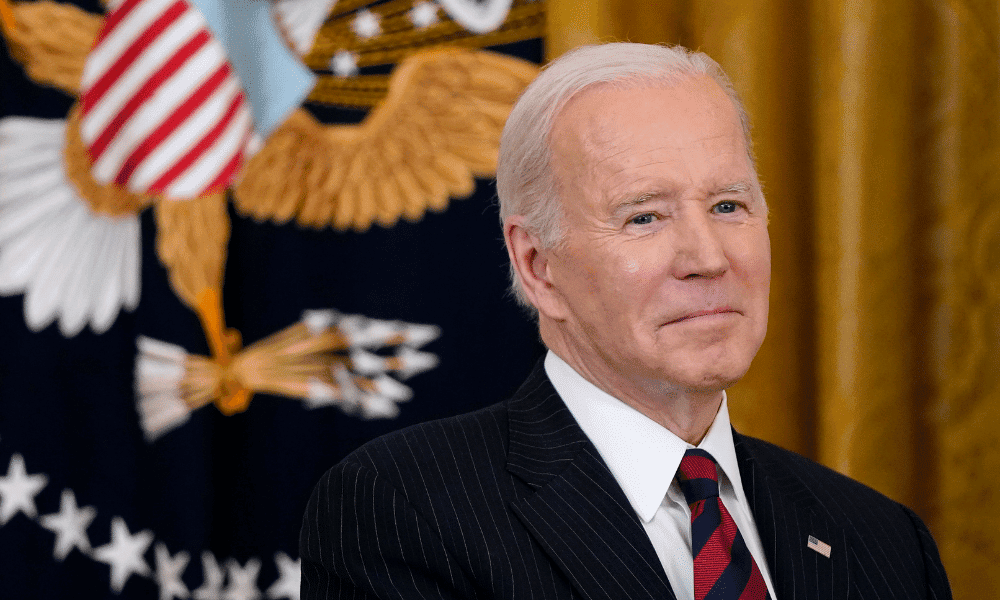
U.S. President Joe Biden has few appealing policy options to get the record-high U.S.
Gasoline prices are under control ahead of the critical summer driving season when millions of Americans fill their tanks and hit the road for vacations.
"The President and our national security team and our economic team are working overtime right now to evaluate.
And examine a range of domestic options," White House spokeswoman Jen Psaki said on Tuesday.
Publicly White House officials have said all options are on the table: a gasoline tax holiday or gas cards that would provide rebates to consumers.
Potential deals to remove sanctions on Iranian and Venezuelan crude exports; and possible relaxation of the Jones Act.
A law requiring domestic cargo to be carried on American-made tankers using union labor.
Privately, officials say all the options are politically complicated and none of them may actually lower gas prices much, according to two sources familiar with the administration's thinking.
“They are perusing the menu and can’t find anything they want to eat,” said Stephen Brown, a veteran oil lobbyist who consults energy companies.
U.S. pump prices reached all-time highs last week following Russia's invasion of Ukraine, threatening to upend the economy.
While fuel prices are soaring around the world, Republicans in the U.S. Congress have blamed Biden's energy policies.
Many think it can boost their chances during midterm elections in November.
Biden "is faced with an angry electorate who sees the price of the pump more frequently than the suffering of the Ukrainians," said Ed Hirs, an energy economist at the University of Houston.
Hirs said the policy options can help lower gasoline prices modestly but will not do much to dent soaring crude oil prices which are the real problem.
Retail gasoline prices have eased from a record of $4.331 hit on Friday but remained at $4.316 per gallon on Tuesday.
According to American Automobile Association data. Crude oil futures remained at around $110 a barrel even after retreating substantially from a high of roughly $139 a barrel on March 7.
Republicans and others have criticized negotiations with Venezuela and Iran to try and get their oil back into the global market, saying the White House is caving into dictators.
TAX HOLIDAY
A federal gas tax holiday would not reduce prices much but would hurt financing for infrastructure projects that rely on the revenue.
A motorist buying 10 gallons at current prices would save less than $2 if the federal gas tax were waived.
Most states impose a higher gas tax such as Pennsylvania's 57.6-cent-a-gallon, the highest in the nation, and California's 53.3 cents-per-gallon.
Several states, such as Florida and Maryland, are moving to suspend their gas taxes.
Lawmakers have asked U.S. refinery officials for input on the gas tax holiday, according to numerous interviews, and the answers were not encouraging.
"We are telling them that it will not have a large impact on gasoline prices. ... to lower gas prices, it starts with lowering oil prices," said a top official at a U.S. refiner.
MORE ETHANOL?
A bipartisan group of U.S. Farm Belt lawmakers has been pushing the White House to lift.
The summertime ban on higher ethanol blends of gasoline called E15, which is now cheaper than the standard E10 fuel.
But E15 is prohibited in the summer due to smog concerns, and White House climate officials oppose lifting the prohibition.
Also, the refining industry is bitterly opposed to boosting ethanol consumption, and the step would increase demand for corn at a time when high food prices are adding to inflation.
Asked about E15 gasoline, Psaki responded only that it was "in the menu of options."
JONES ACT
Trending News
Gold Rises As Ukraine Crisis Escalates Hawkish Fed Caps Gains!
Yen Starts Week On Back Foot With Central Bank Policies In Focus!
St. Louis Fed’s Bullard Says The Central Bank Should Raise Rates Above 3% This Year!
Waiving the Jones Act could help move oil to refineries on the East and West Coasts that lack pipeline access.
But it could anger labor unions.
Washington has temporarily taken the step during emergencies such as after Hurricane Katrina and when hackers shut down the largest U.S. fuel pipeline.
"There is no way the White House does this," said one refining source.
"There's a history of lifting this during supply concerns, that's not the problem."
GAS CARDS
The White House considered giving Americans gas cards to help offset high prices but ditched the plan for now due to opposition.
From lawmakers who questioned the effectiveness, according to a source familiar with the discussions.
There were fears that issuing gas cards would be cumbersome for the Internal Revenue Service and could delay income tax returns.
A senior administration official also cited fraud concerns, noting that cards have been stolen out of mailboxes.
“We are talking to congress about all ideas, all have a good and a bad,” the official said. - INVESTING